


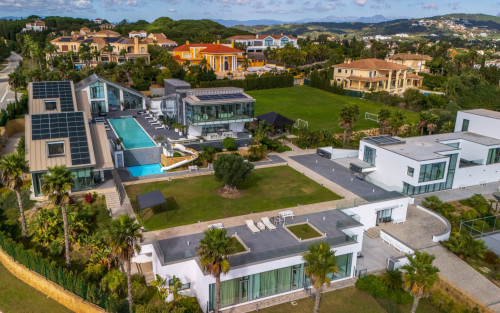





Sea Recovery
Verified Center
This provider's information has been quality-checked by Recovery.com's Research Team for accuracy and completeness, including center verification through appropriate third-party organizations.
Treatment Focus
This center treats substance use disorders and mental health conditions. You'll receive individualized care catered to your unique situation and diagnosis, learn practical skills for recovery, and make new connections in a restorative environment.
Primary Level of Care
Offering intensive care with 24/7 monitoring, residential treatment is typically 30 days and can cover multiple levels of care. Length can range from 14 to 90 days typically.
Treatment Focus
This center treats substance use disorders and mental health conditions. You'll receive individualized care catered to your unique situation and diagnosis, learn practical skills for recovery, and make new connections in a restorative environment.
Primary Level of Care
Offering intensive care with 24/7 monitoring, residential treatment is typically 30 days and can cover multiple levels of care. Length can range from 14 to 90 days typically.
Private Pay
You pay directly for treatment out of pocket. This approach can offer enhanced privacy and flexibility, without involving insurance. Exact costs vary based on program and length of stay. Contact the center for specific details.
Sea Recovery
Sea Recovery
About Sea Recovery
Nestled between a prestigious neighborhood in Sotogrande and the sun-kissed shores of Marbella, lies Sea Recovery, a distinguished rehabilitation center where clients can find solace on their healing journey. Sea Recovery provides discreet care for addiction and mental health, with programmes from 7 days that integrate detox, therapy, and holistic healing in a modern setting. They are equipped to treat suicidality and self-harm, helping clients facing complex challenges find safety and hope.
Embrace Whole-Person Healing with Clinical Depth
Sea Recovery supports clients with addiction, eating disorders, and mental health concerns through confidential, personalised care led by a clinical team with 150+ years of experience. Clients receive 5 individual therapy sessions each week and daily group therapy, building skills for relapse prevention, emotion regulation, and relationship repair. Care also includes treatments like forest therapy, mindfulness, equine therapy, Reiki, and ice baths. Medical diagnosis is available when needed as part of a 360-degree approach.
Thrive in Opulence along the Mediterranean
Located in a gated coastal estate, Sea Recovery blends serenity, privacy, and holistic wellness. Clients enjoy beach walks, spa services, yoga, and outdoor activities like hiking and golf. The culinary team prepares gourmet, health-conscious meals tailored to individual dietary needs. Discreet care includes private chauffeurs, airport transfers, medical check-ups, and bespoke therapy, while premium options include pet-friendly rooms, family accommodation, intervention planning, and dedicated support staff.
Maintain Connection with Lifelong Guidance
Sea Recovery’s lifetime aftercare programme offers continued, personalised guidance after core treatment. Through regular therapist check-ins, weekly coaching, and trusted specialist referrals, clients receive ongoing support to strengthen resilience, reinforce goals, and prevent relapse. It also provides web-based support groups, digital relapse-prevention resources, remote monitoring, and interactive wellness activities, designed to nurture sustainable coping, growth, and long-term stability, no matter where life takes them.

Highlights from the Center
Highlights
These highlights are provided by and paid for by the center.
Equine Therapy
Bespoke With Exclusive Staff
Pet Friendly
Utmost Confidentiality
Center Overview
Treatment Focus
This center treats substance use disorders and mental health conditions. You'll receive individualized care catered to your unique situation and diagnosis, learn practical skills for recovery, and make new connections in a restorative environment.

Sea Recovery
Pricing and Program Length
Estimated Center Costs
The cost listed here (€8,000 - €25,000/week), is an estimate of program cost. Center price can vary based on program and length of stay. Contact the center for more information. Recovery.com strives for price transparency so you can make an informed decision.



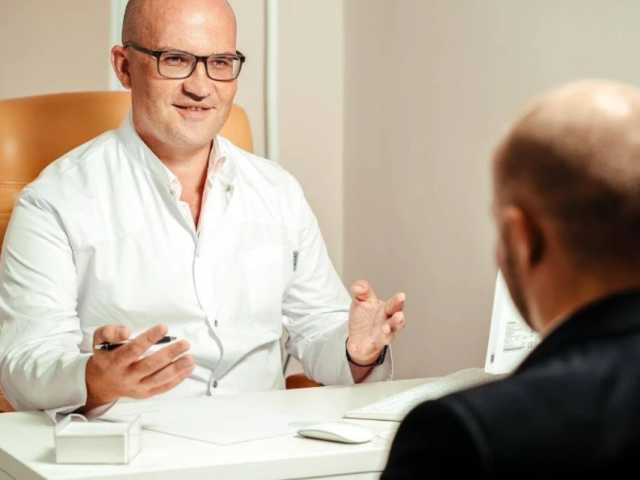
Recovery.com Verified Listing
Recovery.com verified that the name, location, contact information and license to operate for this treatment provider are valid and up-to-date.
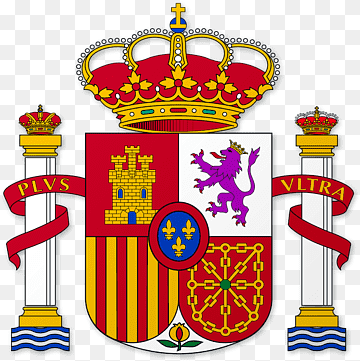
Licensed by Spain
Recovery.com is an independent, third-party mental health resource. Verification does not imply endorsement and does not guarantee the quality of treatment services.
Meet Your Care Team

Dr. Paula
Psychiatrist & Head of Mental Health Team

Doctor Charles Triay
General Practitioner & Substance Misuse Specialist

Simon
Lead Therapist

Wendy
Pyschotherapist

Nuria
Health Psychologist

Shelly
TRE Therapist

Lorraine
Art Therapist

Aisling
Counselling Pyschologist

Stefan
12 Step Counsellor

Ilya
CEO

Sam
Operations and Staff Director

Estela
Physiotherapist
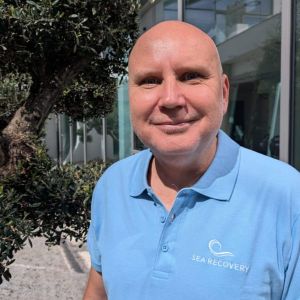
Oliver
Hypnotherapist

Karen
Hypnotherapist

Alex
Personal Trainer

Jasmine
Yoga Teacher
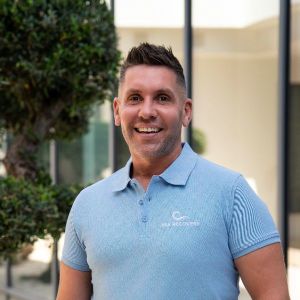
Kasper
Lead Support Worker

Wayne
Support Aid Professional

Deborah
Support Aid Professional

Javier
Client Service Manager

Ian
Night Manager

Jimmy
Chef
Your Care Options
Specializations
ADHD, ADD
ADHD is a common mental health condition caused by dopamine imbalance. Common symptoms include inattention, hyperactivitiy, and impulsivity.
Alcohol
Using alcohol as a coping mechanism, or drinking excessively throughout the week, signals an alcohol use disorder.
Anxiety
Anxiety is a common mental health condition that can include excessive worry, panic attacks, physical tension, and increased blood pressure.
Benzodiazepines
Benzodiazepines are prescribed to treat anxiety and sleep issues. They are highly habit forming, and their abuse can cause mood changes and poor judgement.
Depression
Symptoms of depression may include fatigue, a sense of numbness, and loss of interest in activities. This condition can range from mild to severe.
Drug Addiction
Drug addiction is the excessive and repetitive use of substances, despite harmful consequences to a person's life, health, and relationships.
Obsessive Compulsive Disorder (OCD)
OCD is characterized by intrusive and distressing thoughts that drive repetitive behaviors. This pattern disrupts daily life and relationships.
Trauma
Some traumatic events are so disturbing that they cause long-term mental health problems. Those ongoing issues can also be referred to as "trauma."
Who We Treat
Older Adults
Addiction and mental health treatment caters to adults 55+ and the age-specific challenges that can come with recovery, wellness, and overall happiness.
Executives
Executive treatment programs typically directly support the needs of people who manage businesses and may provide flexible schedules and office space to allow work during treatment.
Young Adults
Emerging adults ages 18-25 receive treatment catered to the unique challenges of early adulthood, like college, risky behaviors, and vocational struggles.
LGBTQ+
Addiction and mental illnesses in the LGBTQ+ community must be treated with an affirming, safe, and relevant approach, which many centers provide.
Men and Women
Men and women attend treatment for addiction in a co-ed setting, going to therapy groups together to share experiences, struggles, and successes.
Midlife Adults
For adults ages 40+, treatment shifts to focus on the unique challenges, blocks, and risk factors of their age group, and unites peers in a similar community.
Treatment Services
Day Treatment
In a PHP, patients live at home but follow an intensive schedule of treatment. Most programs require you to be on-site for about 40 hours per week.
Recovery Coaching
A support service designed to help individuals identify and maintain their personal recovery goals, provide guidance and support, and connect them with recovery resources and community-based services.
Detox
Detox fully and safely removes toxic substances from the body, allowing the next steps in treatment to begin with a clean slate.
Private Therapy
This is an individual therapy that's often available at private therapy clinics. Clients may be able to choose a therapist who best fits their unique needs.
Outpatient
During outpatient rehab, patients attend a structured treatment program while continuing to live at home.
Residential
In a residential rehab program, patients live onsite, with access to daily treatment and 24-hour care. An average stay is 30-90 days.
Approaches
Evidence-Based
A combination of scientifically rooted therapies and treatments make up evidence-based care, defined by their measured and proven results.
Holistic
A non-medicinal, wellness-focused approach that aims to align the mind, body, and spirit for deep and lasting healing.
Medical
Medical addiction treatment uses approved medications to manage withdrawals and cravings, and to treat contributing mental health conditions.
Personalized Treatment
The specific needs, histories, and conditions of individual patients receive personalized, highly relevant care throughout their recovery journey.
Therapies
1-on-1 Counseling
Patient and therapist meet 1-on-1 to work through difficult emotions and behavioral challenges in a personal, private setting.
Meditation & Mindfulness
A practiced state of mind that brings patients to the present. It allows them to become fully aware of themselves, their feelings, and the present moment.
Trauma-Specific Therapy
This form of talk therapy addresses any childhood trauma at the root of a patient's current diagnosis.
Rational Emotive Behavior Therapy
A type of cognitive therapy that identifies negative self-defeating thoughts and behaviors, rewriting beliefs to be positive, empowering, and present.
Mindfulness Therapy
This ancient practice can be mental, emotional, and even spiritual. In meditation, you focus your attention on the present moment without judgement.
Adventure Therapy
This experiential approach uses the physical and emotional challenges of outdoor activities as tools for personal growth.
Animal Therapy
Animals can inspire trust and self-worth. In this experiential therapy, guided interactions are used to improve social skills and emotion regulation.
Conditions We Treat
Pornography Addiction
A person with a porn addiction is emotionally dependent on pornography to the point that it interferes with their daily life and relationships.
Personality Disorders
Personality disorders destabilize the way a person thinks, feels, and behaves. If untreated, they can undermine relationships and lead to severe distress.
ADHD, ADD
ADHD is a common mental health condition caused by dopamine imbalance. Common symptoms include inattention, hyperactivitiy, and impulsivity.
Anger
Although anger itself isn't a disorder, it can get out of hand. If this feeling interferes with your relationships and daily functioning, treatment can help.
Anxiety
Anxiety is a common mental health condition that can include excessive worry, panic attacks, physical tension, and increased blood pressure.
Bipolar
This mental health condition is characterized by extreme mood swings between depression, mania, and remission.
Burnout
Burnout entails mental and physical exhaustion, and leads to a severe lack of fulfillment. This condition is often caused by overwork.
Codependency
Codependency is a pattern of emotional dependence and controlling behavior. It's most common among people with addicted loved ones.
Depression
Symptoms of depression may include fatigue, a sense of numbness, and loss of interest in activities. This condition can range from mild to severe.
Substances We Treat
Alcohol
Using alcohol as a coping mechanism, or drinking excessively throughout the week, signals an alcohol use disorder.
Benzodiazepines
Benzodiazepines are prescribed to treat anxiety and sleep issues. They are highly habit forming, and their abuse can cause mood changes and poor judgement.
Chronic Relapse
Consistent relapse occurs repeatedly, after partial recovery from addiction. This condition requires long-term treatment.
Co-Occurring Disorders
A person with multiple mental health diagnoses, such as addiction and depression, has co-occurring disorders also called dual diagnosis.
Cocaine
Cocaine is a stimulant with euphoric effects. Agitation, muscle ticks, psychosis, and heart issues are common symptoms of cocaine abuse.
Drug Addiction
Drug addiction is the excessive and repetitive use of substances, despite harmful consequences to a person's life, health, and relationships.
Ecstasy
Ecstasy is a stimulant that causes intense euphoria and heightened awareness. Abuse of this drug can trigger depression, insomnia, and memory problems.
Heroin
Heroin is a highly addictive and illegal opioid. It can cause insomnia, collapsed veins, heart issues, and additional mental health issues.
Psychedelics
Hallucinogenic drugs—like LSD—cause euphoria and increased sensory experiences. When abused, they can lead to depression and psychosis.
Languages
Aftercare
Care Designed for Your Needs
Personal Amenities
Amenities
Special Considerations
Center Pets
Addiction and mental health facilities with pets allow patients to interact with friendly dogs, cats, horses, and in some cases, even dolphins.
Clients can bring their own pet(s)
For greater comfort and healing, pet-friendly treatment centers welcome dogs and animal companions to stay with their owners while they attend treatment.
Pet Friendly
For greater comfort and healing, pet-friendly treatment centers welcome dogs and animal companions to stay with their owners while they attend treatment.
Executive Program
Addiction and mental health treatment for executives typically involves high discretion, greater technology access, and more private, 1-on-1 care.
Family Member Stays
Treatment providers welcome family members to stay on-site to better the experience and success of patients and their families as a whole.
Flexible technology policies
Centers with flexible technology policies allow professionals to stay in touch with work and give patients a greater sense of connection and normalcy.
Healthy Meals are provided
Great food meets great treatment, with providers serving healthy meals to restore nutrition, wellbeing, and health.
Activities
Yoga
Yoga is both a physical and spiritual practice. It includes a flow of movement, breathing techniques, and meditation.
Off-Site Activities

Learn More About the Center
Commitment to Confidentiality
Read how Sea Recovery values confidentiality as the cornerstone of their treatment experience.
Rejuvenating Recovery with NAD and Vitamins
Discover how Sea Recovery uses innovative NAD and vitamin infusions to assist in managing withdrawals and cravings.
Lifetime Aftercare Plan
Explore Sea Recovery’s relapse prevention services that can be utilized for a lifetime.
The Ultimate Bespoke Program
Discover the ultimate bespoke 7-day residential retreat featuring a standalone accommodation, panoramic views and unparalleled comfort.
What people are saying
Treatment
4.9
Accommodations
4.9
Food & Nutrition
4.8
Value
4.8
Pros
- Friendly & Competent Staff (10)
- Beautiful Location (10)
- Confidential (10)
- Personalized (9)
Cons
- Poor Internet Connection (2)
Lulu
Treatment in 2024 • (30 days) • Reviewed 08/28/24
Former Client
•PR and Events
•Italy
Elisabeth M.
Treatment in 2024 • (30 days) • Reviewed 06/02/24
Loved One of a Former Client
•Europe
Mike
Treatment in 2024 • (30 days) • Reviewed 05/21/24
Former Client
•Movie actor
•Europe
Martina
Treatment in 2024 • (14 days) • Reviewed 10/16/24
Former Client
•CEO
Anna
Treatment in 2024 • (45 days ) • Reviewed 07/11/24
Former Client
•Canada





